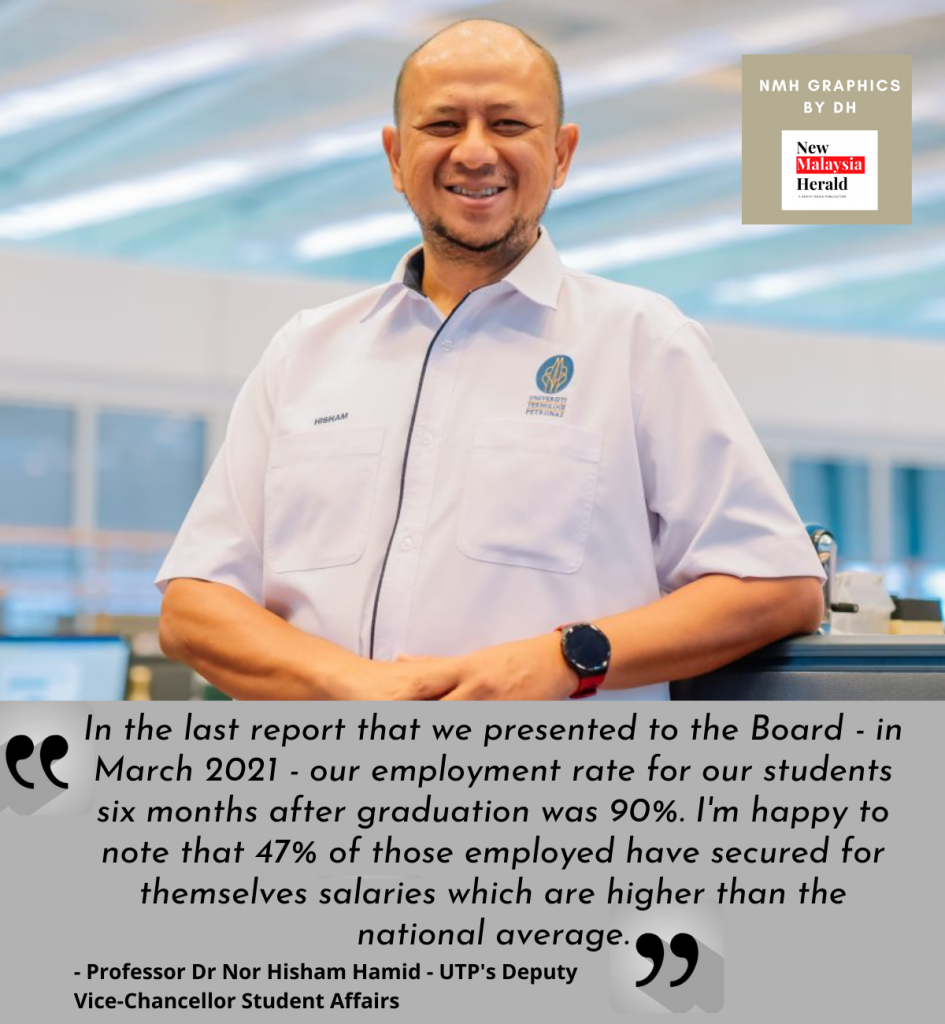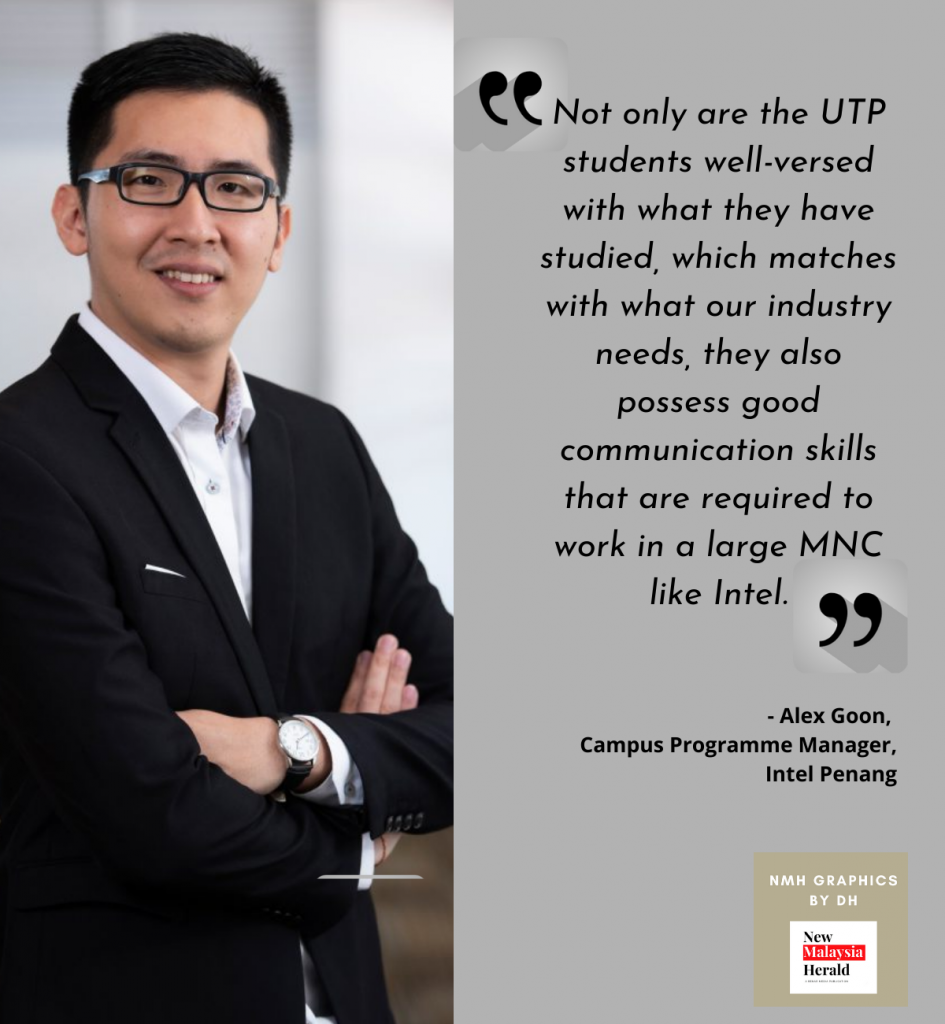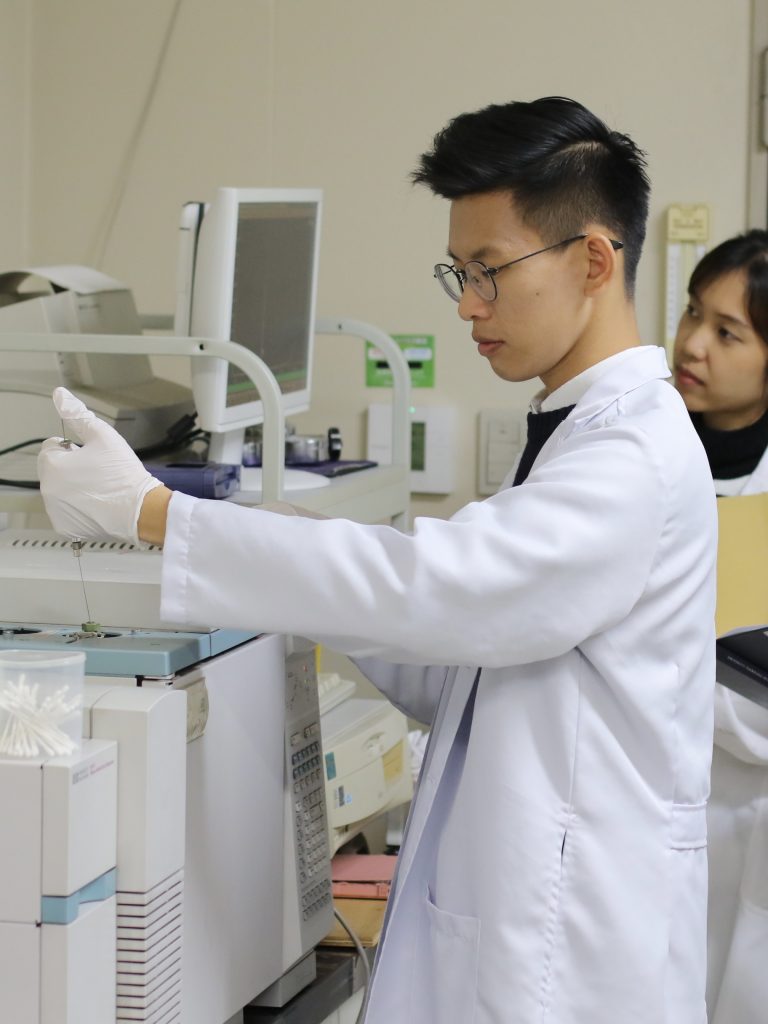By now, many of you who sat for your SPM exams early this year – which was postponed from November 2020 due to the pandemic – may be shopping for the right university/college to continue your tertiary education. Most of you may have already sent in your applications via the UPU online applications based on your SPM trial results, but some are still looking around for the best alternatives.
In looking for the right university to spend your three to four years of studies, it is essential to look at certain key factors that will determine your employability meter after you graduate.
Among other things would be a university that has great relationships with potential corporate companies as that will give you the competitive edge over other job applicants after you graduate.
If You’re Able To, Apply For A Placement Year
Industry placements are the ideal opportunity for gaining relevant experiences and is a great way to discover whether a particular career path is the one for you. Plus, if your employer really thinks you’ve smashed it, you might even have a full-time job waiting for you once you graduate. More importantly, some of these job offerings offer better salaries than the market rates.
One university in particular in Malaysia that provides an edge for its graduates when it comes to employability is Universiti Teknologi PETRONAS (UTP). They have a great value-proposition towards their stakeholders – both students and parents – to ensure that the graduates have a competitive advantage where employability is concerned.
According to its Deputy Vice-Chancellor Student Affairs, Professor Dr Nor Hisham Hamid, during most of their interviews with students and parents on why they selected UTP, the answer was always the high chance of being employed upon graduation. This shows that UTP’s reputation as a university that enables its graduates to secure high paying jobs is something that they have worked very hard to achieve all these years.

“In the last report that we presented to the university’s Board – in March 2021 – our employment rate for our students six months after graduation was 90%. I’m happy to note that 47% of those employed have secured for themselves salaries which are higher than the national average.
“Now the question is how do we do it? It is actually a path that we do together with not only the academics but also our students. When they come into UTP, we will tell them that it is a journey that they need to be committed to,” he emphasised.
UTP has established an industrial advisory panel to ensure that its curriculum is industry-relevant. The panel members meet regularly, and they also come in as adjunct lecturers – and are engaged with the students. So, the exposure for the students to the industry starts very early, in fact at the foundation level.
“While our curriculum is industry-relevant, we also provide opportunities for engagement and interaction with industry practitioners, so that it provides the right context for our students to be prepared mentally to accept challenges moving forward. We talk about two things: Future jobs and Jobs of the Future, meaning to say what are the jobs that they want to target for.”
Jobs Of The Future
According to Associate Professor Dr Nurlidia Mansor, UTP’s Senior Director for the Centre for Student Development, many are not cognizant of the difference between Jobs of the Future and Future Jobs.
Future Jobs is simply looking at the ad, setting the target and the future job will be there. If you work in oil and gas, you most likely will have a higher salary compared to working in electronics and so on. But Jobs of the Future tells you to study the national and industry trends, anticipate what’s in store five to ten years down the road, and plan properly about what courses to take at the university.

Since its inception, UTP has been consistent in its mission in developing well-rounded graduates focusing on seven attributes and core values.
“The seven attributes include technical competence, lifetime learning capacity, business acumen, critical thinking, communication and social skills, practical aptitude and solution synthesis ability, whilst UTP’s core values are collegiality, accountability, adaptability, integrity, and respect,” she added.
With this in mind, UTP has successfully incorporated a structured curriculum within the internship programmes. Yes, UTP offers a seven-month industrial internship programme for its students in some of the most prestigious corporate companies in the country and also worldwide.
Students are provided with support and guidance from the career office on the know-how in securing placements at companies that fit their skills and programme of study. Training is provided to grow, explore, and experience the value chain of securing jobs, including enhancing communication skills, and preparing for interviews.
“Our seven-month industry internship has been one of the key success factors as to why our students are highly employable upon graduation. The duration provides an in-depth exposure and experience to the interns, whilst providing companies with the opportunity to train interns who may be prospective talents for their industry. Our curriculum is our niche, relevant to our industrial internship, very comprehensive and structured,” Dr Nurlidia added.
According to Alex Goon, the Campus Programme Manager for Intel Penang, “UTP is one of the focused universities that we always aim for our graduates and intern hiring, especially for our engineering positions.

“Not only are the students well-versed with what they have studied which matches with what our industry needs, they also possess good communication skills that are required to work in a large MNC like Intel,” Goon added.
Another organisation that is fully satisfied with UTP and its graduates is Schlumberger.
“We are always looking for students and recent graduates with a track record of continuous self-improvement, that are looking to drive change while adapting quickly to the expectations and requirements of the dynamic energy industry,” said Schlumberger’s Asia Pacific Talent Acquisition Manager Chua Han Jim.
He added that UTP’s commitment to industrial collaboration and their 7-month internship programme has always been the differentiating factor for Schlumberger to engage talents from UTP for career opportunities and internships.
“We are looking forward to future collaboration with UTP as we continue to create amazing technology that unlocks access to energy for the benefit of all,” added Chua.

One of the key factors that are crucial for the success of the industrial internship is the close relationship and connection that the university has with companies. Supervisors conduct discussions and planning for the student’s internship journey throughout the tenure. Each student is assigned with two supervisors, one from the industry and another from UTP, and the team will have constant monitoring and touchpoints in providing suitable tasks, learning opportunities, and exposures as well as project deliverables and expectations. The supervisors also participate in joint assessments of the students’ performance and learning attainment at the end of the programme.
“I think one of the reasons that we do well in our internship programmes is that we engage our industry partners in our curriculum development to ensure that our students get the right knowledge – in addition to training them with the right tools,” said Professor Hisham.
The university also prides itself in allowing students to develop their management and leadership skills through the running of student-led events such as the Technology, Education & Career (TEC) Fair. The career fair is open to UTP students and graduates from other institutions of higher learning who are looking for prospective companies for their careers.
Already beyond its 20th year, TEC would attract an average of 60 companies from all industries on campus, which provides booths, recruitment drives, career talks and many more. Since the pandemic and the restriction on conducting physical activities, UTP students have managed to conduct the TEC fair virtually and managed to attract over 1,000 talents during the two-day event, while exploring job offers and internship opportunities, taking part in e-engagements with company representatives through webinars, live chats, and attending online interviews.

Global Marketplace
In order to be ready for the global marketplace, UTP is committed to providing its students with at least one international experience before they graduate.
“We encourage them to have a global mindset and global citizenship. Now how do we prepare our students to be ready for the world market? We allow them to engage with the international community. We promise every student that they would have an opportunity to go abroad for a short stint, working for a few months to a year overseas. Currently, we have about 10% of our graduates who are actually working outside Malaysia while 43% are employed by multinationals, not only in the oil and gas sector, but electronics too,” Professor Hisham said.
Meanwhile, according to Toh Jian Heng, currently an executive with PETRONAS Refinery and Petrochemical Corporation Sdn Bhd based in Pengerang, he was employed just two months after graduation in September 2020.
“I definitely feel that what I had studied in UTP has assisted me greatly in being an effective employee. Having a background in Chemical Engineering, all the courses offered were very relevant to the current industry whereby the knowledge obtained in the courses is beneficial for my work.”

“Courses such as Plant Design Project gave us a huge platform to research about the related industry, and then to design a plant with a particular production, with thorough considerations from different engineering aspects.”
Toh said that the courses were beneficial for him as he is already familiar with the requirements and hence, he rarely faces major issues while completing his job.
“The courses/subjects introduced to me since the first year have undoubtedly provided me with a solid foundation of chemical engineering knowledge. Other than chemical engineering-related courses, I also had a chance to learn about subjects such as Engineering Economics and Engineers in Society.”
“These taught me how to be an effective and professional engineer with excellent qualities and got me prepared even well before I stepped into working life as an engineer.”
Toh added that other than his studies, he also had many opportunities to participate in clubs and events at UTP, where he learnt a lot about self-discipline, time management and interpersonal skills.
“Striking a perfect balance between studies and extra-curricular activities requires a high level of self-discipline and this is where I got to polish up my time management skills to plan my schedule optimally without affecting any one of my responsibilities, especially my studies. I have learnt to prioritise my tasks and execute them well. I got the chance to meet with people from different backgrounds, and these gave me many opportunities to interact, speak confidently, communicate effectively, and empathise.
“All of these are equally important when I entered the working life, especially when dealing with people to complete my task or project. Other than that, UTP has also made it compulsory for its students to take up a minimum of four credited co-curriculum subjects throughout their studies, ranging from sports and recreational activities, arts and culture to event management. This is indeed a marvellous approach to emphasise on the importance of being a well-rounded graduate, equipped with different 21st-century skills and knowledge,” said Toh. – New Malaysia Herald
For more information on UTP’s foundation programme, visit https://admission.utp.edu.my/
New Malaysia Herald publishes articles, comments and posts from various contributors. We always welcome new content and write up. If you would like to contribute please contact us at : editor@newmalaysiaherald.com

Facebook Comments